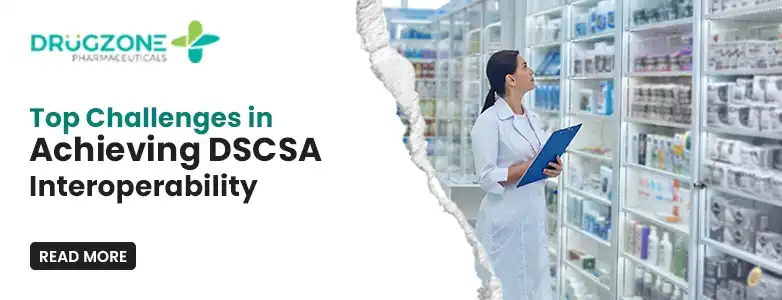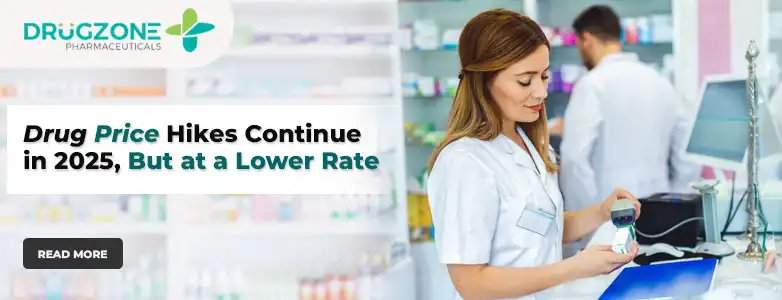
Posted On: October 30, 2024
How Wholesalers Can Help Pharmacies Improve Patient Outcome
Pharmacies play a crucial role in ensuring patients get the medication they need. However, the journey of medicine from manufacturing to patient is a complex one, where wholesale pharmaceutical distributors serve as an essential bridge.
Their expertise and infrastructure support pharmacies, ultimately leading to improved patient outcomes.
6 Ways Pharmaceutical Distributors Empower Pharmacies to Enhance Patient Care
Here are six ways wholesale pharmacy distributors make a difference.
1. Ensuring Timely Delivery of Medications
The primary function of pharmaceutical distributors is to ensure that pharmacies are well-stocked with the necessary medications.
With the help of a robust supply chain, distributors can deliver medications promptly and efficiently. This timely delivery is critical because any delay in medication availability can disrupt a patient's treatment plan, potentially leading to adverse health effects.
Beyond just the delivery, distributors often provide tracking and real-time updates to pharmacies. It enables them to anticipate their arrivals and manage inventories accordingly.
Such transparency is valuable for pharmacists who need to assure their patients about the availability of their prescribed medications.
2. Offering a Wide Range of Products
Pharmacy distributors usually have an extensive catalog of medications and healthcare products.
Access to a wide range of products allows pharmacies to cater to diverse patient needs. This variety is especially vital in settings where patients might require less common medications that are not available everywhere.
In addition, distributors can also provide pharmacies with access to generic medications and alternatives that are cost-effective and just as effective as branded ones. This makes treatment more accessible and affordable for patients, which can lead to better adherence to prescribed therapies and subsequently, better health outcomes.
Plus, offering specialized medications for rare diseases or different formulations such as liquids, tablets, and extended-release capsules lets pharmacists provide more personalized care for the patients.
3. Providing Valuable Data and Insights
Wholesale pharmaceutical distributors also harness advanced technologies to gather and analyze data related to medication distribution, and these insights empower pharmacists to make informed decisions.
For example, by understanding which medications are frequently in demand, pharmacies can better manage stock levels and reduce instances of shortages or overstocking. This data can also help in identifying trends in medication prescriptions, which can then inform healthcare strategies.
If a pattern emerges showing increased demand for specific medications, it might prompt pharmacies to educate patients about managing related health conditions, thus leading to proactive health measures and improved patient care.
4. Supporting Compliance with Regulations
The pharmaceutical industry is heavily regulated to ensure patient safety and efficacy of medications.
Wholesale distributors assist pharmacies by ensuring that all medications they supply are compliant with the latest legal and safety standards. This support is crucial because it helps pharmacies avoid the potential risks of dispensing non-compliant medications, which can have serious legal repercussions and health risks!
The distributors also provide guidance on how to manage recalls and withdrawals effectively, minimizing the impact on both the pharmacy operations and patients.
5. Delivering Education and Training
Pharmaceutical distributors also offer training and educational resources to pharmacies. These programs can cover a range of topics from drug safety and new medication introductions to handling complex prescriptions.
Empowering pharmacists with the latest knowledge ensures they can better serve their patients through informed healthcare advice.
6. Enhancing Storage and Handling Practices
Proper storage and handling of medications are essential for maintaining their efficacy.
Distributors often provide guidance, resources, and sometimes even equipment to aid pharmacies in storing medications correctly. This ensures that drugs are kept under optimal conditions, preserving their quality until they are dispensed to patients.
In cases of specialized medications that require cold chain logistics, distributors’ expertise is invaluable. They provide the necessary infrastructure and knowledge to handle these challenges. It helps in ensuring that such medications remain effective when administered, which directly impacts patient health positively.
We're Your Go-to Pharmaceutical Distributors
At Drugzone, we are not merely middlemen, but the go-to partners to pharmacies. We provide a seamless connection between manufacturers and pharmacies, delivering timely insights, supporting compliance, and enhancing patient education, all of which contribute significantly to improved patient outcomes.
Frequently Asked Questions (FAQs)
Q. What role do wholesalers play in the pharmaceutical supply chain?
Wholesalers serve as intermediaries between pharmaceutical manufacturers and pharmacies to ensure a steady and reliable supply of medications. They help manage inventory, distribute drugs efficiently, and support pharmacies by providing access to a wide range of pharmaceutical products quickly and consistently.
Q. How can partnering with a wholesaler enhance a pharmacy's operational efficiency?
Partnering with a wholesaler can make pharmacy operations more efficient by simplifying the supply chain. Wholesalers provide helpful tools and systems for managing inventory and deliveries, which reduces the risk of running out of stock and lowers storage costs.









